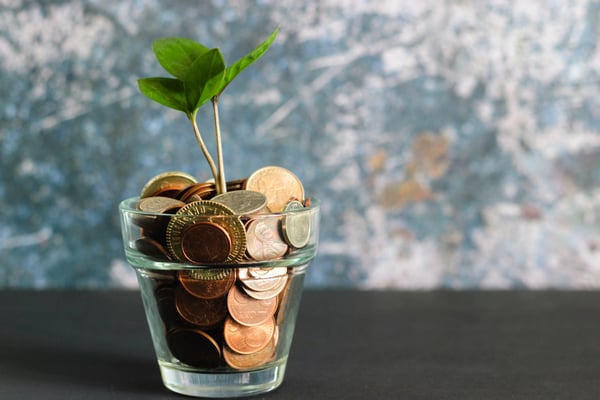By Iona Bain, our financial wellbeing partner and founder of the Young Money Blog
Who would have imagined that the economy could be stopped in its tracks? Yet that’s what seems to be happening thanks to the coronavirus lockdown. As Western governments try to halt the spread of COVID-19, people like you and me are left wondering just how big the fall-out will be, and how much our finances will be affected when it’s finally over.

So, what do we know so far? Are there causes for hope? And what should we be looking out for in “corona-nomics”?
What do we know already?
The figures may vary from different sources, but economic experts all agree on one thing. We cannot confirm it yet, but the British economy will have almost certainly entered a technical recession. This is where GDP falls for two successive quarters in a row. But the global economy is also set to enter a recession in the wider definition of the word, meaning high unemployment, low industrial activity and less money in our pockets.
How does this compare to other crashes?
If even the most optimistic forecasts prove to be accurate, the economic impact of coronavirus would surpass the financial crash in 2008.
The concern now is that, depending on how long the lockdown lasts, the economy could be heading for a depression. This is much worse than a recession because it would be a sustained, long-term downturn. Depressions are far rarer, with only one in the past 166 years (compared to 33 recessions).
But in fairness to the experts, it’s too early to determine the full economic cost of coronavirus.
Most economists haven’t tried to account for the long-term economic impact of the coronavirus – because it would be very hard. We don’t know how many closed businesses will eventually re-open, how many companies will lose investment for good or how long global travel will suffer after the lockdown ends.
Until we know when and how countries will start to get back to normal, the economic forecasts are just informed guesswork - even more so than usual.
What’s the good news?
According to the Centre for Economics and Business Research, the economy is still functioning, albeit at 69% of its normal levels. Many important sectors like finance, science, and agriculture, have seen output drop only by 10-20%. Disruptive, yes. But not disastrous.
It’s also true that the government’s emergency measures for business will avert a much more serious decline. The Chancellor is offering business interruption loans, rate holidays and the option to furlough inactive workers, where salaries will be paid by the government at 80% of their usual level (up to a maximum of £2500). This should stop companies laying off workers and help them snap back quickly post-Corona.
Even if social distancing continues for some time, there are signs that our economy is adapting. Many people who have lost work or aren’t in education anymore are now retraining or becoming key workers.
Some supermarkets have already given their workers a 10% pay rise, and there is much speculation that other key workers will get more rights and better pay when the crisis ends (including migrants).
Indeed, history suggests that pandemics can have economic benefits in the long-term. Scholars have also found that survivors had a new lease of life, spending more on leisure in the long run – a silver lining, perhaps, for Britain’s night-time and entertainment economy.
So, what’s next?
The government had increased its borrowing even before coronavirus came along. That’s because it could benefit from relatively low interest rates. Our central bank, the Bank of England, is now buying £200bn of bonds to help finance the recovery and government borrowing is expected to be about £218bn higher than before.
The IMF is suggesting more “public infrastructure investment or across-the-board tax cuts” in the long run. But this means more national debt and potentially a record-high deficit (where a government spends more than it taxes). This could make future borrowing more expensive and make it harder for to deal with future emergencies. The pressure will be on government to reduce the deficit in the long run by raising taxes, limiting spending - or both.
The next few months, and possibly years, will be tougher than normal for all of us. But a solid financial plan will help you get through. See what benefits you can access using the Turn 2 Us calculator. Increase and draw on your easy-access savings if possible and be more mindful than ever of your spending.
You can also ask for a mortgage holiday, which won’t affect your credit rating, but be aware the interest will be added to your loan at a later date – so only do this if you need to. Finally, check if you can take advantage of a higher credit card limit or a bigger interest-free buffer on your overdraft. All the above might just help you get through COVID-19 in one piece.
This is a financial promotion.
Health Shield Friendly Society Limited is authorised by the Prudential Regulation Authority and regulated by the Financial Conduct Authority and the Prudential Regulation Authority.
.jpg)


